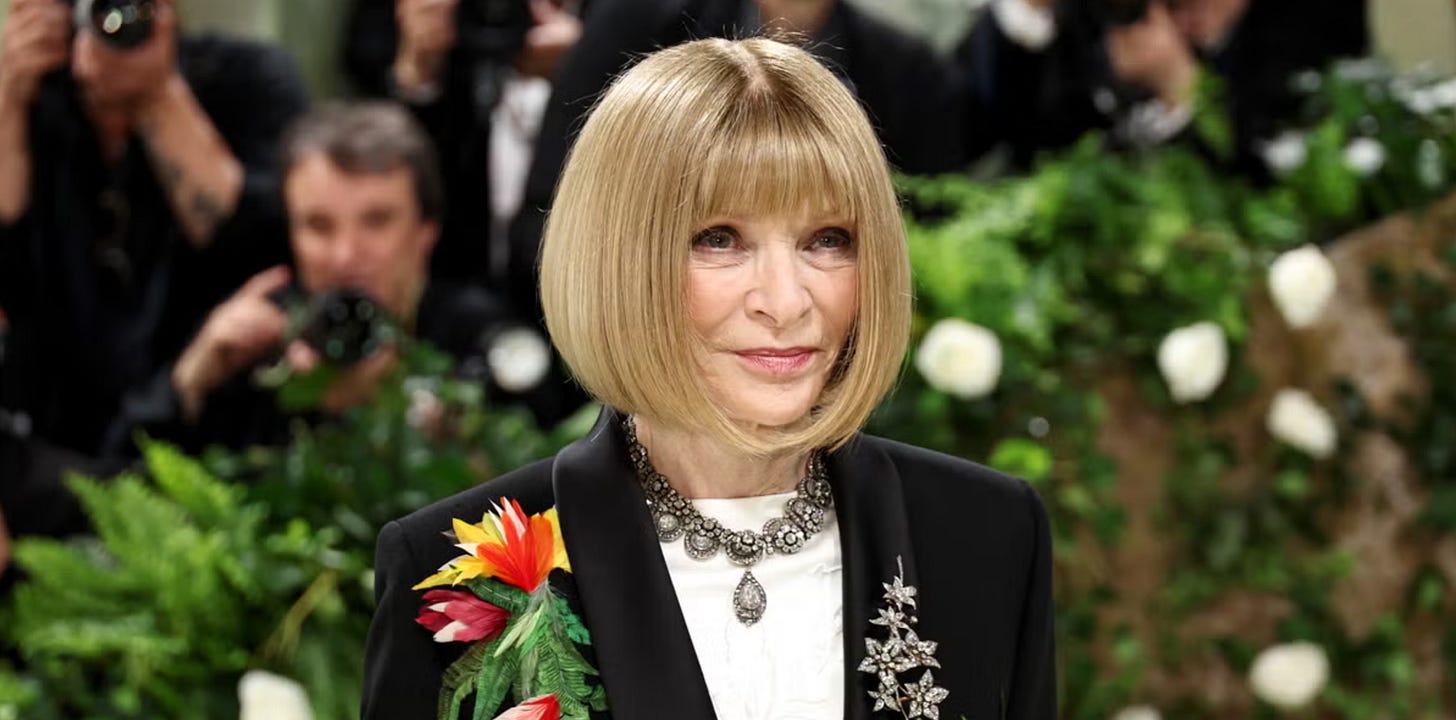Anna Wintour and Queen Elizabeth II
5 fashion people react to the news of Anna Wintour "stepping down" from Vogue
Happy July dear readers!
I’m back to school this summer, taking two classes I’d been looking forward to all June: an in-person review writing workshop and a virtual cultural criticism class. The two classes complement each other very well, both forcing me to engage with subjects other than fashion. The review class primarily focuses on film, literature and food while the criticism class looks at how sports, music and the arts more broadly shape and influence culture.
It’s been fun to meet with the same group every week, read each other’s work and discuss the readings (this Zadie Smith piece will stay with me forever). The weekly assignments are keeping me quite busy, which is why I haven’t kept up with my publishing cadence but thank you for still being here 😊
Anna Wintour’s Departure and the End of an Era
For the main event, I spoke to five fashion journalists about Anna Wintour’s legacy and the future of Vogue. These are: Kimberly Jenkins, founder of The Fashion and Race Database (
); Faran Krentcil, journalist and founding editor of Fashionista, Nana Agyemang, founder of Every Stylish Girl, Odunayo (Ayo) Òjó, creator of Fashion Roadman; and Tariro Mzezewa, reporter and former national correspondent at The Times.Wintour famously evaded questions about her retirement or succession plan but on June 26, 2025, fashion woke up to the news of the most powerful woman in the industry stepping down as editor-in-chief of the magazine she governed for 37 years. Although Wintour will very much remain in charge of the Condé Nast publishing machine, someone else will take her place as, *surprise*, not editor-in-chief but head of editorial content.
There is an undeniable parallel between Wintour and Queen Elizabeth II’s reign, two women who were lauded as much as they were despised for their place in the social and political hierarchy. Queen Elizabeth II was a reminder of a bloody history that still reverberates today; Wintour is emblematic of an entrenched system of power rooted in white hegemony. “Here, at the end of it all, is an old woman,” Robin Givhan wrote about Queen Elizabeth II. “She exuded continuity. She changed little even when so much called out to be changed.”





